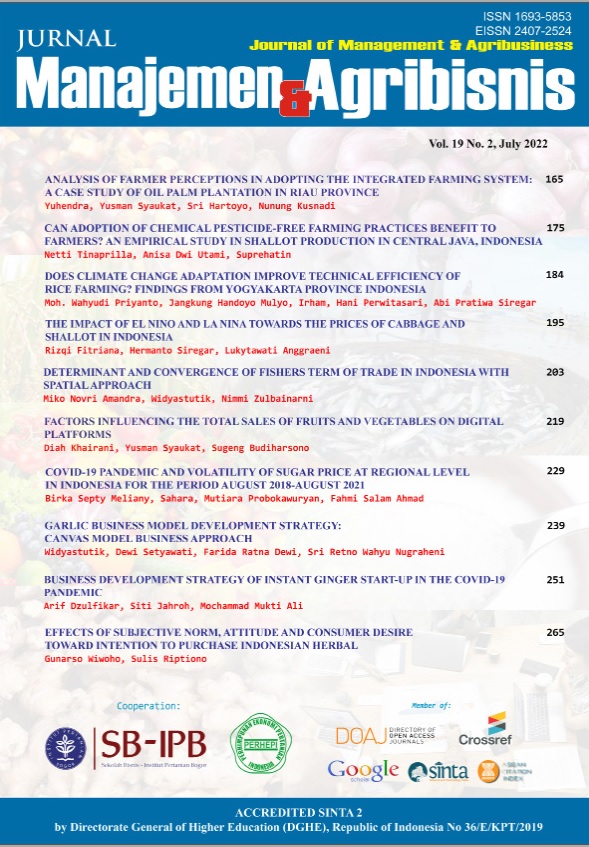Analysis of Farmer Perceptions in Adopting The Integrated Farming System: A Case Study of Oil Palm Plantation in Riau Province
Abstract
Crop-livestock integration is a future agricultural system that can increase the added value of farming while and being environmentally friendly. However, it is not widely used by oil palm farmers. Oil palm integration with cattle is expected to meet the demand for oil palm organic fertilizer and utilize palm fronds as animal feed. The objective of this research is to analyse the factors that influence farmers’ decisions to implementing oil palm-cattle integration. A survey was conducted with 300 respondent who were chosen with purposive sampling with two categories: integrated farming and non-integrated farming. The logistic model was used to analyze adoption factors. The result shows that factors influencing the decision of farmers to adopt oil palm-cattle integration are the time of involvement of household head in farming, extension services, income from oil palm, and the household’s dependent ratio. Meanwhile, the factors that do not encourage farmers to adopt oil palm-cattle integration are formal education and involvement in farmer groups. The results observed several socio-economic factors that can lead to the increase of the crop-livestock integration such as farmers still requiring good extension and training.
Keywords: adoption, logistic model, oil palm-cattle integration, smallholders
Authors
Authors who publish with this journal agree to the following terms:
- Authors retain copyright and grant the journal right of first publication with the work simultaneously licensed under a Creative Commons Attribution License that allows others to share the work with an acknowledgement of the work's authorship and initial publication in this journal.
- Authors are able to enter into separate, additional contractual arrangements for the non-exclusive distribution of the journal's published version of the work (e.g., post it to an institutional repository or publish it in a book), with an acknowledgement of its initial publication in this journal.
- Authors are permitted and encouraged to post their work online (e.g., in institutional repositories or on their website) prior to and during the submission process, as it can lead to productive exchanges, as well as earlier and greater citation of published work (See The Effect of Open Access).

